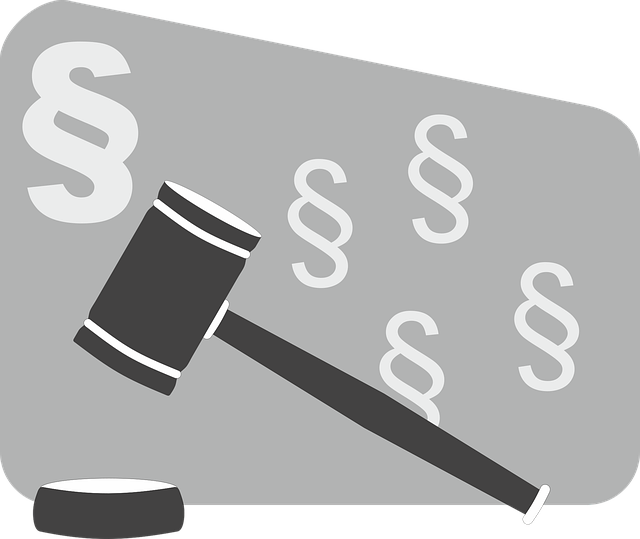Navigating Financial Services Regulation in Court is crucial for resolving securities class actions, where investors seek compensation and accountability for corporate misconduct. Courts scrutinize financial institutions' practices, ensuring regulatory compliance and fairness. Successful prosecutions set precedents, protect investors, and promote industry integrity. Legal professionals strategize using regulations like disclosure rules and anti-fraud provisions, while companies defend with meticulous records and expert legal counsel. This dynamic landscape drives proactive risk management, enhanced governance, and transparent communication in the financial sector.
In the dynamic landscape of financial services, navigating complex regulations is paramount. One area that demands careful consideration is securities class actions—a powerful tool for investors seeking justice but also a significant challenge for businesses. This article delves into the intricate world of securities class actions from a legal perspective, exploring key aspects such as regulator oversight, successful case elements, defense strategies, and implications for the industry. Understanding these dynamics is crucial for effectively navigating financial services regulation in court.
- Understanding Securities Class Actions: A Legal Perspective
- The Role of Financial Regulators in Class Suit Supervision
- Key Elements of a Successful Securities Class Action Case
- Strategies for Defending Against Class Action Lawsuits
- Impact and Implications on Financial Services Industry
Understanding Securities Class Actions: A Legal Perspective

Navigating Financial Services Regulation in Court involves a complex interplay of laws and legal strategies, especially when it comes to securities class actions. These lawsuits, typically initiated by investors who suffered financial losses due to alleged misconduct by companies or individuals, demand a deep understanding of both the regulatory framework and the unique nuances of each case. From the perspective of legal professionals, securities class actions are not merely about seeking monetary compensation but also serve as a crucial mechanism for holding corporate entities and their executives accountable for white-collar crimes.
Across the country, courts have been increasingly scrutinizing financial institutions’ practices, ensuring they adhere to stringent regulatory standards. This scrutiny often arises from allegations of fraud, misstatement, or failure to disclose material information. Successful prosecution in these cases not only results in financial redress for aggrieved investors but also sets precedents that can shape future conduct within the industry. By balancing the need for accountability with the complexities of financial markets, securities class actions play a vital role in maintaining fairness and transparency in navigating Financial Services Regulation.
The Role of Financial Regulators in Class Suit Supervision

Financial regulators play a crucial role in overseeing and navigating complex class suit cases, particularly in the realm of securities litigation. These regulatory bodies are tasked with ensuring fair practices within the financial sector, including protecting investors’ rights. When it comes to class actions, their involvement is essential for maintaining integrity and transparency throughout the legal process. By scrutinizing case details, they can identify potential violations, ensure proper disclosure, and safeguard the interests of all parties involved.
Regulatory supervision in these matters has an unprecedented track record of success across the country. Their expertise enables them to navigate the intricate web of financial transactions, especially when dealing with general criminal defense strategies employed by defendants. This oversight is vital for preventing manipulative practices and ensuring that class suit outcomes are just and beneficial to all investors affected.
Key Elements of a Successful Securities Class Action Case

Navigating Financial Services Regulation in Court is a complex task, but for experienced legal professionals, it can be a powerful tool to enforce justice and protect investors’ rights. When considering a successful Securities Class Action case, several key elements come into play. Firstly, a strong legal argument grounded in relevant financial services regulations is essential. This involves intricate knowledge of securities laws, such as those governing disclosure requirements, fiduciary duties, and anti-fraud provisions. Understanding these regulations is crucial when building a case against negligent or fraudulent corporations and individuals.
Additionally, the ability to aggregate a substantial number of affected investors is vital. A class action’s power lies in its collective impact, allowing both corporate and individual clients to join forces and share in potential compensation. This collective action also has implications for philanthropic and political communities, as it can lead to increased oversight and improved financial protection measures for all stakeholders. Effective communication strategies, inclusive of transparent updates, are key to maintaining investor confidence and ensuring the case’s success.
Strategies for Defending Against Class Action Lawsuits

Navigating Financial Services Regulation in Court presents unique challenges for companies, especially when faced with securities class action lawsuits. A robust strategy to defend against such actions should be multifaceted. One crucial approach is to maintain meticulous records and documentation, ensuring transparency and compliance with regulatory requirements. This includes comprehensive internal audits and regular reviews of corporate practices to identify potential vulnerabilities. By fostering a culture of regulatory adherence within the organization, financial institutions can proactively mitigate risks.
Additionally, engaging experienced legal counsel specializing in white-collar and economic crimes defense is essential. These experts can provide strategic guidance, helping to distinguish between legitimate business activities and potential legal pitfalls. Their knowledge of navigating complex legal landscapes enables them to formulate robust defenses, aiming for the complete dismissal of all charges if warranted. This proactive and comprehensive approach ensures that companies not only comply with regulations but also have a strong foundation against which to defend themselves in court.
Impact and Implications on Financial Services Industry

The rise of securities class actions has significantly reshaped Navigating Financial Services Regulation in Court, impacting the way financial institutions operate and interact with their corporate and individual clients. These high-stakes cases not only involve substantial monetary damages but also set precedents that influence industry standards and best practices. As a result, financial services firms must remain vigilant and proactive in managing legal risks to achieve extraordinary results while adhering to evolving regulatory frameworks.
The implications extend beyond mere compliance, affecting strategic decision-making processes. Financial institutions are increasingly focused on robust risk management strategies, enhanced corporate governance, and transparent communication with investors to mitigate the potential for class action lawsuits. By embracing these changes, companies can not only defend against legal challenges but also strengthen their reputation and maintain the trust of their clients in an increasingly regulated environment.
Navigating Financial Services Regulation in Court requires a deep understanding of securities class actions, their key elements, and the role of financial regulators. As these lawsuits can significantly impact the industry, proactive strategies for defense are essential. By balancing the need for accountability with fair market practices, the financial services sector can ensure transparency and protect investors while mitigating the implications of these court cases. This balanced approach is crucial in maintaining a robust and trustworthy financial landscape.






